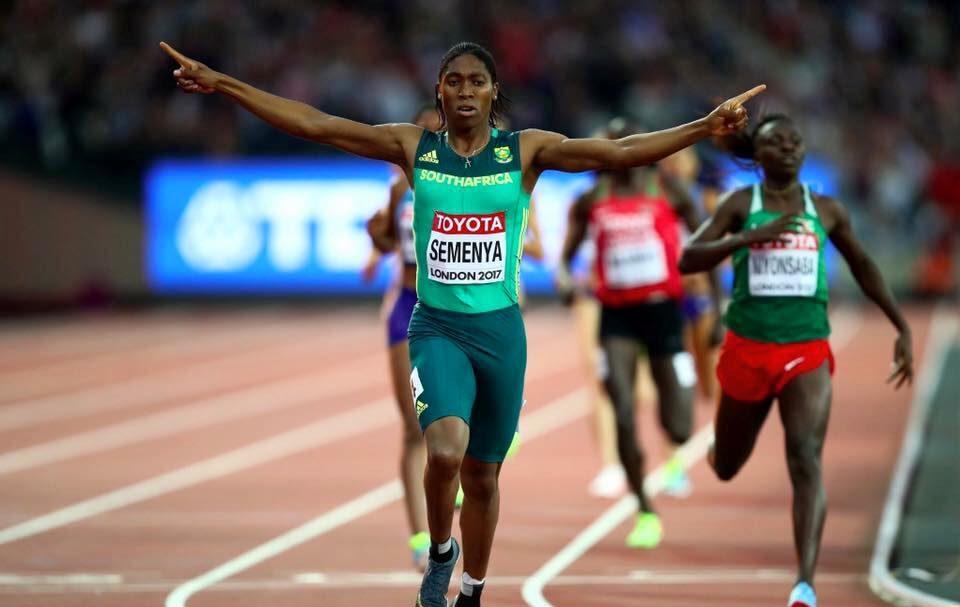Caster Semenya wins human rights appeal over testosterone rules
A ruling that the double Olympic track champion was discriminated against by forcing her to lower her testosterone to continue competing doesn't change World Athletic restrictions, but does pave way for further legal challenges

The European Court of Human Rights has ruled two-time Olympic champion Caster Semenya was discriminated against by rules forcing her to lower her natural testosterone levels to continue competing in top-level track events. Although Tuesday’s ruling by the Strasbourg, France-based court could open more legal avenues for Semenya that could potentially see her return to elite competition without having to medically lower her testosterone levels, the human rights court’s decision does not change the current World Athletics rules.

The 32-year-old South African middle-distance runner, who won gold in the 800m at the 2012 Olympic Games in London and again at the 2016 Summer Games in Rio, has been barred from the event by World Athletics regulations affecting women with conditions that cause high natural testosterone (called 46 XY DSD, also known as hyperandrogenism). Those rules require women with the condition to undergo medical interventions to lower their natural hormone levels if they want to run in races between 400m and one mile. Semenya and other runners who fall under the DSD (differences in sex development) rules have refused to do so and have been forced to compete in other events.
New Canadian documentary explores Caster Semenya story in human-rights terms
Semenya’s case before the human rights court was not a challenge against World Athletics directly, but rather against the government of Switzerland. In 2019, the Switzerland-based Court of Arbitration for Sport (CAS)—sport’s highest court—ruled against Semenya’s challenge of World Athletics’ rules on testosterone limits. She challenged CAS’s decision at the Switzerland’s supreme court in 2020, and lost that case as well. Semenya’s latest case before the human rights court—which would have been her last legal option had she been unsuccessful—dealt specifically with the supreme court’s ruling. In a tight 4-3 ruling, the human rights court determined there were “serious questions” about the validity of World Athletics’ rules and ordered the government of Switzerland to pay 60,000 euros (C$87,500) to cover court costs and related expenses.
In a statement immediately following Tuesday’s decision, World Athletics—noting the slim majority in the court’s ruling in favour of Semenya—said they maintain DSD regulations “are a necessary, reasonable and proportionate means of protecting fair competition in the female category as the Court of Arbitration for Sport and Swiss Federal Tribunal both found, after a detailed and expert assessment of the evidence. The case was filed against the state of Switzerland, rather than World Athletics.”
World Athletics responds to European Court of Human Rights decision.
👇
— World Athletics (@WorldAthletics) July 11, 2023
World Athletics said it will “liaise with the Swiss Government on the next steps and, given the strong dissenting views in the decision, we will be encouraging them to seek referral of the case to the ECHR Grand Chamber for a final and definitive decision.” In the meantime, the current DSD regulations, approved by the World Athletics Council in March 2023, will remain in place.
Semenya did not immediately comment on the ruling, and it isn’t yet clear what her next legal steps will be. However, the window is quickly closing on any chance of her running in her preferred 800m event at next year’s Summer Games in Paris. World Athletics’ 2019 rules on testosterone levels had prompted Semenya to switch to competing in the 5,000m, an event that didn’t fall under the regulations. However, World Athletics updated their rules in 2023. Women athletes are now required to reduce their testosterone levels below a limit of 2.5 nmol/L for a minimum of 24 months to compete internationally in the female category in any event, not just the events that were restricted (400m to one mile) under the previous regulations.

Semenya has been at the front of the testosterone battle for over a decade, but she’s not the only athlete affected by the World Athletics DSD rules. Francine Niyonsaba of Burundi, the silver medallist behind Semenya in the 800m at the 2016 Olympics, also chose to change distances rather than lower her natural testosterone levels. Niyonsaba went on to finish fifth in the 5,000m in Tokyo and won the 2021 Diamond League title in the event, then went on to set a world record in the 2,000m. She is now banned from competing under the new World Athletics rules.
With files from Marley Dickinson

